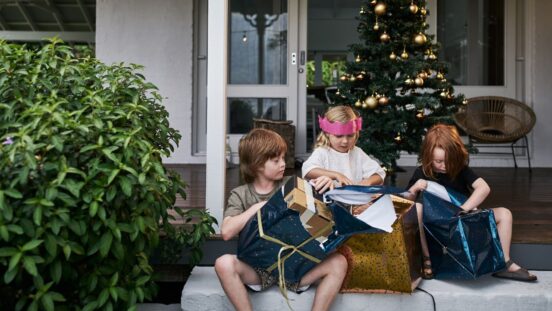Anna Heinrich and Tim Robards share the six things which helped them budget for a baby
The OG Bachie couple are now parents to one-year-old daughter, Elle.
Eight years ago on the very first season of The Bachelor, Tim Robards gave Anna Heinrich his final rose.
Since then, love has contined to blossom between the pair. In 2018, the happy couple married and bought their first home and last month, their daughter Elle turned one.
Tim and Anna have spent time reflecting on their first year as parents – and are sharing what they’ve learnt with Bounty Parents.
It seems, time and sleep aren’t the only things to disappear when you have a baby – so does your money!
Tim and Anna share their top 6 ‘baby budget’ tips
1. Plan ahead – before bub is even in the picture!
“We saved money by thinking ahead, like making sure our health insurance was up to date and included pregnancy. The more you can plan, the less rushed you’ll feel when the time comes around. Being ahead is always easier than playing catch up,” says Anna.
“Keeping our financial wellbeing in good shape – the same way we do our physical and mental wellbeing – and feeling comfortable with our overall spending and saving habits while waiting for Elle to arrive was important. We wanted to feel good about our finances and be able to focus on family, and ANZ has provided a great pool of resources and advice, like their Savings Calculator which allows you to work out how much you need to save, and how long it’s going to take you to get there.”

Tim, Anna and one-year-old Elle get festive.
2. From sharehouse, to our house
Tim and Anna can tell you from firsthand experience that whether you’re buying your first house, or looking for a bigger space to accommodate more kids, the cost of a new family home is always a big one. But instead of thinking about your house as a cost, think of it as an asset – one that will likely grow in value as your family grows too.
“I took out my first investment property home loan with ANZ when I was 17, knowing that house would become an asset for my future. Finding the right house for us for right now was another investment, but we made sure it was achievable for us and matched the lifestyle we needed for our growing family,” explains Tim.

Tim was just 17 when he entered the property market.
3. Something borrowed, something blue
The pair contacted friends and family with young kids to see what they could borrow – a solution that was better for them and the environment.
“We even bought some things from secondhand websites, selling them on when Elle no longer had any use for them.”
4. Choose value
There’s no getting around it, humans can be expensive. And while hand-me-downs are a great way to lower your expenses, they won’t always be available or good enough. So what’s the most cost-effective way to stock up on the necessities? Choosing items that will hold their value. You might be spending a lot of money upfront, but you’re buying things that you can use again, or make your money back on in the future.
“Research was key to bringing down the dollars for us. Talking with friends about what we really needed and what were gimmicks was really helpful. They’d already been through it and had so much advice to give on the items of actual value to our family,” explains Anna.

Anna asked her mum friends for recommendations on which baby products were worth spending money on.
5. C is for Career
When it comes to work-kid balance, there’s no one way about it. Every person has their own dreams, preferences and ways of working. But whatever path you choose, knowing your goals and aspirations can help build a budget that allows for your dreams to come true.
“Sharing the load was the best option for us – we both love what we do and it was important that we were able to bring that into a life with kids. It’s all about the balance and the give and take. We look after each other and make sure we still prioritise both our personal and shared life goals,” says sports physio and former Neighbours star, Tim.
6. There’s no one-size-fits-all
No two baby budgets are the same, so it can be hard to know what to expect.
“It’s another reason why talking to people who’ve been in similar situations to you about their costs is really important, it can give you a way better idea of what your family personally needs or will go through,” says Anna.
The more complex your budget, the more helpful it can be to have a community on board – whether that’s a forum, a family or a financial planner to help ease your fears and plan the way forward.




